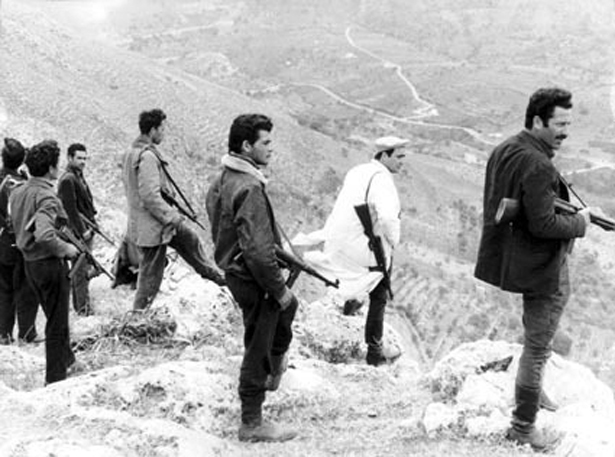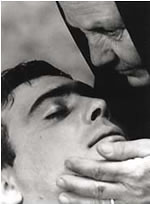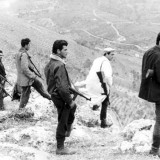In this masterpiece classic director Francesco Rosi tells the story of Salvatore Giuliano, a famous Sicilian gangster that during the mid-40’s collaborated with a Sicilian separatist group, Movement for the Independence of Sicily (MIS), with close ties to the Mafia engaging with small-scale attacks on government and police targets.

Rosi delivers a poignant documentary that whisks viewers back and forth in time – the superiority of Giuliano’s gang over the police (carabinieri) and later depicting his funeral and court sessions. Interestingly enough, Rosi does not provide us with direct first person dialogs from Giuliano, we learn a lot about him through his friends and the results of his actions.
The real villagers of Montelepre – that helped Giuliano – provide a deeper sense of credibility for the narrative, largely because in essence they renact the true events they experienced first hand. A most memorable scene, is the crying women dash towards the carabinieri after learning that their arrested husbands – suspected of collaborating with Giuliano – are about to be transferred to Palermo. The sheer emotional force of this clash that illusrates the immense power of the immediate family circle and the village strong solidarity – is profound.

The film is also about the importance of commuication with its diverse manifestations. We hear Giuliano’s gang whistling on hill tops to alert the arrival of the carabinieri, we hear the village drummer announcing the latest curfew orders, the village women spreading the word about the fate of their husbands, and the court sessions where conflicted interests play out the evidence about the responsibles for the massacre at Portella Della Ginestra.
The soundtrack by Piero Piccioni provides a charged suspense ambience that minimalistically supports the dramatic events that unfold, leaving ample space for the natural sounds and the occasional voice over to carry most of the emotional direction.
Gaspare Pisciotta (Giuliano’s deputy), played skillfully by Frank Wolff (postwar trend of many Italian directors to use American actors), demonstrates the transition of Pisciotta from being Giuliano’s most dedicated right hand into a collaborator with the carabinieri. As the social environment is rapidly evolving with conflicting interests surfacing either by historical events, mafia pressures, bandit alliances, carabinieri, family and community – are constantly pushing protagonists to optimize stances.

